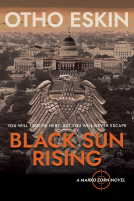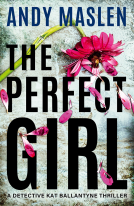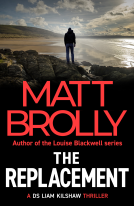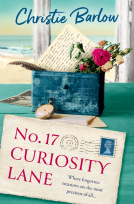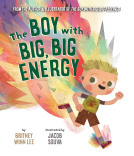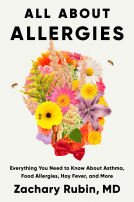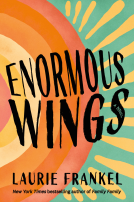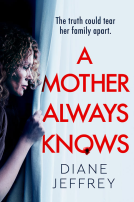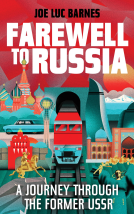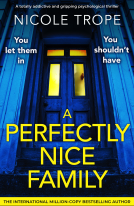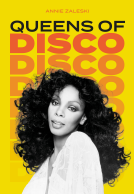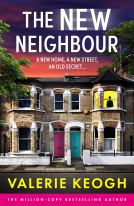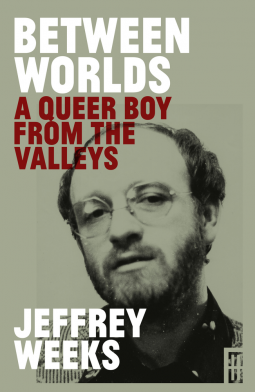
Between Worlds
A Queer Boy from the Valleys
by Jeffrey Weeks
This title was previously available on NetGalley and is now archived.
Send NetGalley books directly to your Kindle or Kindle app
1
To read on a Kindle or Kindle app, please add kindle@netgalley.com as an approved email address to receive files in your Amazon account. Click here for step-by-step instructions.
2
Also find your Kindle email address within your Amazon account, and enter it here.
Pub Date Oct 04 2021 | Archive Date Apr 08 2021
Talking about this book? Use #BetweenWorlds #NetGalley. More hashtag tips!
Description
A man’s own story from the Rhondda.
Jeffrey Weeks was born in the Rhondda in 1945, of mining stock. As he grew-up he increasingly felt an outsider in the intensely community minded valleys, a feeling intensified as he became aware of his gayness.
Escape came through education. He left for London, to university, and to realise his sexuality. From the early 1970s he was actively involved in the new gay liberation movement and became its pioneering historian. This was the beginning of a long career as a researcher and writer on sexuality, with widespread national and international recognition.
He has been described as the ‘most significant British intellectual working on sexuality to emerge from the radical sexual movements of the 1970s’.
His seminal book, Coming Out, a history of LGBT movements and identities since the 19th century, has been in print for forty years. He was awarded the OBE in the Queen’s Jubilee Honours in 2012 for his contribution to the social sciences.
Available Editions
| EDITION | Other Format |
| ISBN | 9781912681884 |
| PRICE | $29.99 (USD) |
| PAGES | 300 |
Average rating from 21 members
Featured Reviews
 Vicky p, Reviewer
Vicky p, Reviewer
Jeffrey Weeks needs no introduction. A well-known gay activist, Weeks is also a historian and author of numerous books, articles and papers. His books Coming Out, Sexuality and Its Discontents and others have adorned the shelves of many a student house (including one I used to live in) since they appeared in print. Between Worlds is his autobiography from young boy growing up in a close-knit mining community in Wales to gay activist in London in the 60s and later respected historian and sociologist of LGBT identities in Britain. The book however, is not just a record of a personal journey but also of a profound "social and cultural transformation" that led from the de-criminalisation of homosexuality and the erupting gay movement to a wider acceptance of LGBT identities in Britain today. We sometimes take all this for granted but barely a generation ago homosexuality was illegal, reputations and careers were easily destroyed, and young people were more likely to hate themselves for their feelings than find positive role models.
The book starts with Week's childhood in the Rhondda region in Wales in the 50s and early '60s. One of those places where life revolved around the pit, the radical politics of the trade union, and the pub, the Rhondda epitomised powerful contradictions:
"The Rhondda I grew up in was a byword for community, for neighbourliness, for warmth and mutual support. All this was true. The downside was that it was also a conservative, defensive, inward-looking culture. It bred intense local trust and strong social bonds, but also a prickly distrust of the wider world, and an acute sensitivity to criticism, especially from insiders."
It would be unfair to say that this warmth and support did not also extend to young people like Weeks. On one condition, though: that they kept their homosexual feelings a secret never to be made public. It was not that there were no other lesbians or gay men if you knew where to look; it's rather that the sense of shame and guilt was so strong that a young boy like Weeks could easily be led to believe he was the only one. This atmoshere of secrecy and shame was soon to change, though, as young Weeks finds out when he moves out of the Rhondda and into the whirlpool that was 60s London. The student movement, the repercussions of the Stonewall riots, the formation of the GLF (Gay Liberation Front), the emergence of a radical gay and lesbian movement that challenged the established mores, all this contributed to unprecedented changes both in attitudes and in lifestyle choices.
Weeks documents these changes with the precision of an eyewitness. His involvement with radical gay politics, his participation in groupings that sought to promote the acceptance of homosexuality, and his friendships and connections with other gay activists, historians and academics form the backbone of the book. Weeks does not shy away from documenting the tensions and divisions within the gay movement as well. Diverse and sometimes opposing views about how gay liberation could be achieved, the close links but also bitter disagreements with the labour and trade union movement, the rejection of the politics of an older, more cautious generation make this book a fascinating account of the gay movement and its development. But this is also a personal story; faithful to the 60s belief that "the personal is political", Weeks intertwines his historical account with his own personal journey as activist, researcher, historian and a sexual being.
This book will appeal to those interested in a history of the gay liberation movement in Britain from the '60s onwards. Its direct and simple style can be deceptive; beneath it, one will find a subtle and nuanced approach to the questions and issues that concerned the generation of gay people that came of age in the late sixties. Chapter 1, however, the account of Weeks' childhood years in the Rhonnda has a much wider appeal. A story of the forces that sustained communities that are no more, at least in that form, this chapter will apeal to anyone who was ever aware of being different in a world that both cherished and smothered him/her.
"I left the Rhondda just before my nineteenth birthday, and despite regular visits in the 50-odd years since never lived there again. I moved into different worlds, became a different person, not despite but in large part because of the love and support provided by my parents ... Yes, as a queer boy from the Rhondda I had to flee its intense embrace in order to become myself. What that self was or could be I have spent a lifetime exploring."
Thank you to netgally and Parthian Books for an advance copy.
I knew nothing about Jeffrey Weeks going into this book so I might be a little biased...but I loved this. I am forever fascinated by the lives of LGBTQ+ persons who lived through 1970-2000s and this man was in the thick of it. Very interesting read and I hope to pick up my own copy in the future to share with friends. Would recommend to those looking to expand their understand of LGBTQ+ struggles pr are just big ole' lovers of memoirs like myself
4.5 stars.
 Media/Journalist 526791
Media/Journalist 526791
This was such a fascinating and thought-provoking read. As a younger queer person, I appreciated the insight into what the LGBTQ community was like in the late twentieth century and how much has changed since then.
 Reviewer 712890
Reviewer 712890
“Words can be weapons, but they also help to give meaning to barely formed feelings, and I gradually learned through words my desires had a name, many names, which said something about me, what I was and could be.”
As a queer person, I’m surprised that I hadn’t heard of Jeffrey Weeks until this memoir. “Between Worlds” is not just an account of the activist’s remarkable life through some of the most socially radical and turbulent times for LGBTQ people—it’s a kind of time capsule as well, telegraphing moments in history for an audience that (like myself) might know little about the forerunning movements and battles and tragedies and victories that made today’s circumstances possible. Though I live in the U.S. and had a hard time grasping some of the political/geographical nuances and in-language of the earliest chapters (in which Weeks describes his childhood), I was drawn quickly to his renditions of his mother (and his excessive attachment to her) as well as some of the painful, coded gay experiences that were formative in his acceptance of his sexual identity.
There are beautiful and thought-provoking speculations on why we are queer—and the nature of the question itself—with insights from a chorus of contemporary gay activists. There are illuminating sections about pre-digital queer life in a city like London, and the coiled pathways leading into and revealing the omnipresence of queer spaces (at tube stations, theaters, music halls, squares, Turkish baths, etc.) roiling underneath the warp and weft of "everyday" reality. There is detailing of illness and death, scathing critique of Thatcher’s silence on HIV/AIDS (echoing, for American readers, Reagan’s own deplorable reticence), and how all these things intersected in very palpable, visceral, and personal ways for Weeks and other queer individuals in the '80s and '90s.
I’m excited to delve more into his other writings, and return to this memoir with more clarity/context of his greater body of work!
Thank you Parthian and NetGalley for gifting this arc in exchange for an honest review.
Prior to reading Between Worlds by Jeffrey Weeks I was knowledgeable about his work as an activist, as well as his specialization on sexuality and how it pertained to sociology. I would highly recommend Between Worlds to anyone looking to explore a memoir depicting the realities of being LGBTQ+. Society has come a long way in terms of social acceptance, but still has a long way to go in working towards establishing and maintaining equal rights.
Between Worlds will release 1 April 2021.
I have admired Weeks for a while, being as he was one of the first queer historians I read, and was an absolute lifesaver while writing university essays (he’s great for a good quote about queer history or about queer identities).
In this book, he turns the lens on himself, and takes us through the fascinating times and locations that created him, from being a young sensitive and nerdy child in the Welsh valleys, to being heavily involved in the early days of queer activism in London.
These parts of the book are some of the most powerful- Weeks captures the energy, spirit and characters of both, and really creates a vision of a time that was hung in the balance, and was so pivotal to his life and those of many others.
He then moves on to his life as a historian, watching, documenting and writing about the UK (and wider world) as it goes through some significant turning points, especially for LGBTQ+ people (the first pride parades, the AIDS crisis, Thatcher, Section 28, equality legislation).
It occasionally veers a little into digressions about university life, but Weeks is at his best when he describes the unimaginable transformations in queer life and acceptance he has witnessed throughout his life, and his role as a historian and archivist means he observes them with brilliant insight and tenderness.
The moments where he connects the wider national picture with his personal life- in which he watches partners fall ill and pass away, and explores different relationship types- are really quite special. You realize just how much of the last few decades he has seen go by, and just how far we have all come.
I received an ARC from NetGalley in exchange for an honest review.
 Christine T, Reviewer
Christine T, Reviewer
I enjoyed this book both for its references to the attitude of people of the Rhondda Valleys in the 70s and for Weeks' first hand experience of the LGBT+ struggle.It was funny, sad and extremely enlightening and I would recommend this memoir to everyone as we all need a deeper understanding of each other.
Thank you Netgalley and Parthian for giving me the opportunity to give my unbiased opinion and diolch yn fawr Jeffrey.
Readers who liked this book also liked:
Otho Eskin
General Fiction (Adult), Mystery & Thrillers, Politics & Current Affairs
